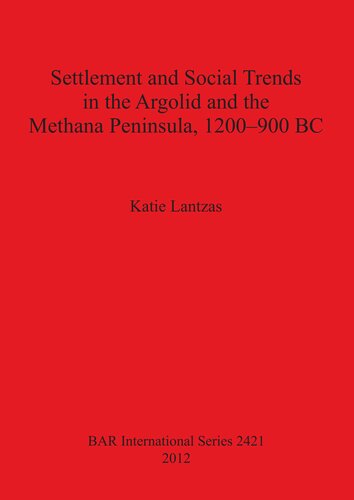

Most ebook files are in PDF format, so you can easily read them using various software such as Foxit Reader or directly on the Google Chrome browser.
Some ebook files are released by publishers in other formats such as .awz, .mobi, .epub, .fb2, etc. You may need to install specific software to read these formats on mobile/PC, such as Calibre.
Please read the tutorial at this link: https://ebookbell.com/faq
We offer FREE conversion to the popular formats you request; however, this may take some time. Therefore, right after payment, please email us, and we will try to provide the service as quickly as possible.
For some exceptional file formats or broken links (if any), please refrain from opening any disputes. Instead, email us first, and we will try to assist within a maximum of 6 hours.
EbookBell Team

0.0
0 reviewsThis research centres on the ideology and socio-economic practices of the communities in the Argolid and the Methana Peninsula (Peloponnese, Greece) that existed during approximately 1200 BC through 900 BC. A thorough examination of mortuary practices, the built environment, ceramic material and metal objects demonstrate that during this transitional period an ideological shift took place alongside complex socio-economic developments. An analysis of the material evidence indicates the active formation of a new ideology and socio-economic practices that privileged the individual and the domestic unit over the larger corporate group. After presenting the geographic and research background for these two regions, the author discusses the concept of the Greek"Dark Ages" and analyses the mortuary evidence and built environment, demonstrating that, following the collapse of the Mycenaean palatial administration, the remaining communities maintained and developed practices that promoted the individual or the domestic unit. Analysis of specific examples from the ceramic material and metal objects dating to this period are used to discuss specific activities, such as production and exchange. Evidence from this data illustrates that these activities had, in all probability, taken place outside the direct control of the Mycenaean palatial administration and continued without substantial interruption throughout this period. This re-appraisal of the material culture dating from the Late Helladic IIIB 2 through Early Geometric period combines new theoretical approaches to collapsed societies and attempts to reconstruct the ideology and socio-economic practices of Iron Age communities in the Argolid and the Methana Peninsula.